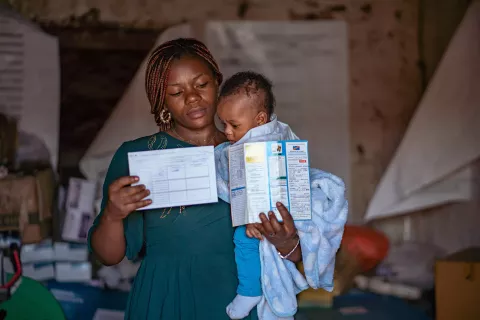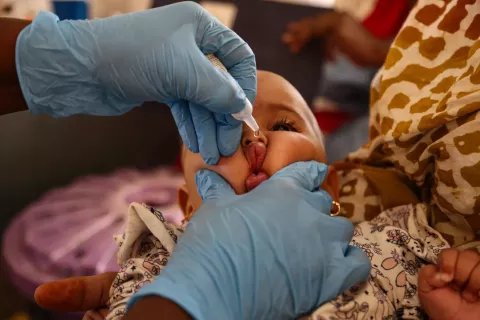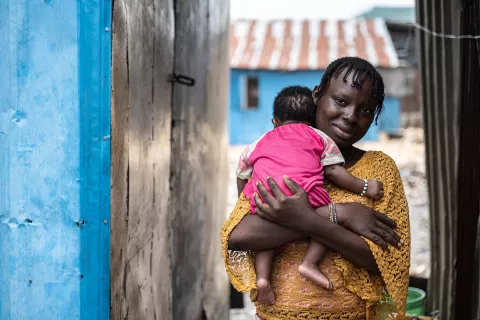Sitting exams is never easy, but exams in 2020 were doubly stressful
with COVID-19 during the partial reopening of schools in Senegal
A line of heads burrowed down in concentration zig-zagged through the classroom, exposing dozens of spaces between students for physical distancing. The teacher quietly paced in front of the room, supervising his class. It was a Friday morning in the Ecole Cherif Macky Haidara of Kolda, and a little over a hundred fifth grade students were sitting a preliminary test for the departmental junior high-school admission exam.

Senegal swiftly introduced preventive measures against COVID-19 after the first case surfaced on 2 March 2020, including the closure of schools and universities - one of the first sub-Saharan African countries to do so. The closure left children deprived of education for three months, though alternative methods such as digital learning and the use of radio and TV programs were used nationally to ensure the continuation of learning.

After two months of lockdown, in May the country adapted its coronavirus strategy. President Macky Sall announced that, ‘’people must now learn to live in the presence of the virus by adapting our individual and collective behaviors’’ and urged his government to adapt its anti-coronavirus strategy.
On 25 June 2020, the government partially reopened schools for only examination classes. Supported by UNICEF, the Ministry of National Education developed a response plan consistent with the national strategy led by the Ministry of Health and Social Action to ensure safe school protocols. The response plan covers not only the period of the pandemic, but also looks at the idea of revising the school calendar in its aftermath and assesses different ways of evaluating learning.
‘’We have been here since June 25,’’ says the school’s director Césaire Diatta, ‘’with new sanitary guidelines in place.’’ Measures include dividing the fifth-graders into four groups, wearing masks in and outside the classroom, washing hands, sitting one student per table and in a zig-zag form, and taking temperatures with a thermoflash at the entrance and exit of the school.
Studying under COVID-19 pandemic is an all-around reality. ‘’Even the exam that the students are taking right now contains the subject of corona’’, muses the school director. ‘’Students are being asked to create a dialogue between someone contesting the existence of the virus and someone who believes in it, under the language and communication skillset.’’

According to the education sector response plan, the official school year is set to begin in November 2020. The regional inspector of education of Kolda comments, ‘’together we are working to ensure students will go back to school in the optimal study conditions.’’




